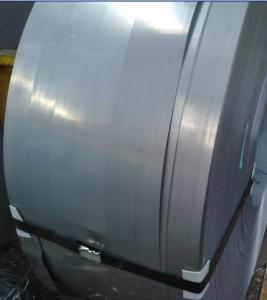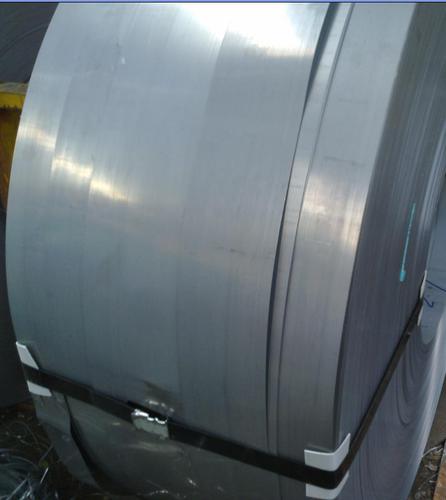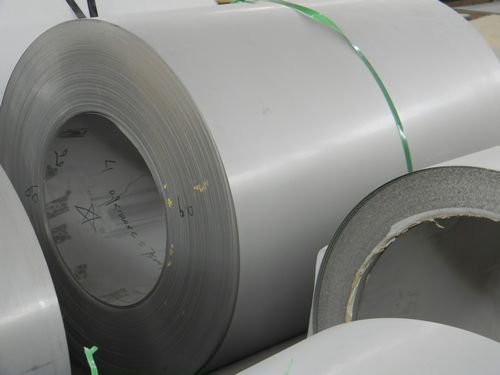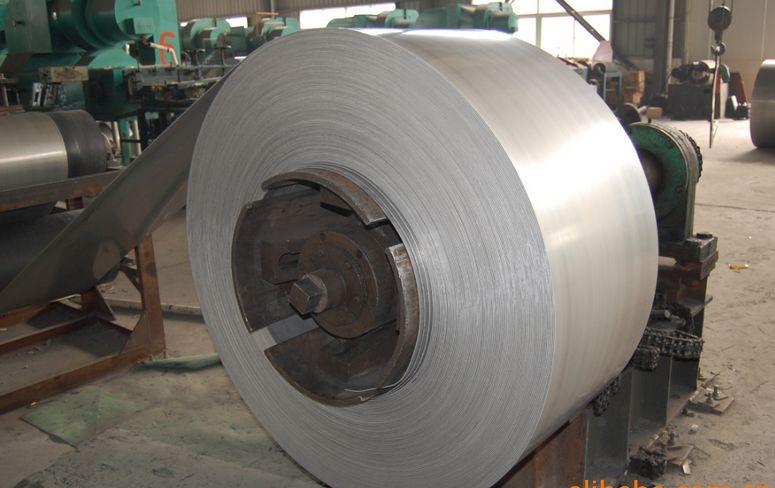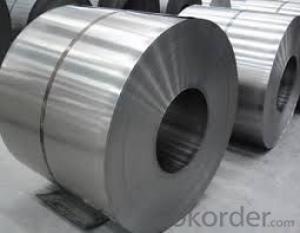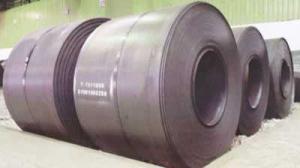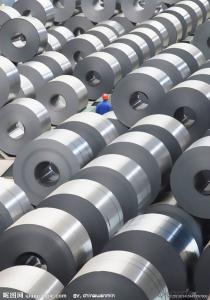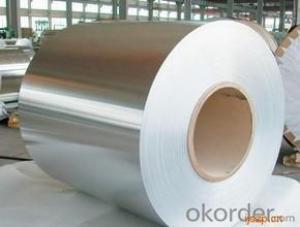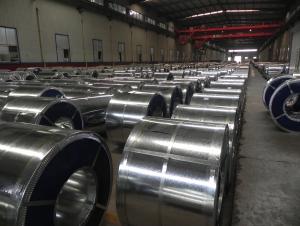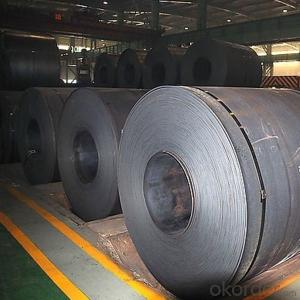hot rolled stainless steel coil
OKorder Service Pledge
OKorder Financial Service
You Might Also Like
stainless steel coil
Stainless steel is a production which not easy rust,acid resistance and corrosion resistance,so it is widely used in light industry,heavy industry,daily necessities and the decoration industry.my company long term supply stainless steel porducts including:stainless steel sheet,stainless steel coil and stainless steel tube.
Article | stainless steel coil |
Specification | 1m 1.219m 1.5m or as your requirement |
Surface | 2B NO.1 BA Hairline 4K 6K 8K No.3 No.4 |
Type | coil |
Thickness | 3-30 mm |
Brand | TISCO JISCO LISCO and so on |
Application | Foodstuff,gas,biology,metallurgy,electron,chemical,petroleum,boiler,nuclear energy, equipment fertilizeretc and so on |
Parking | Waterproof paper, steel strip packed, wooden case,or as customers's requirement |
Payment | Small quantity (within total $20000.00) T/T at sight, 30% in advance , 70% after receiving the B/L Large quantity : L/C at sight |
container size | 20ft GP:5898mm(Length)x2352mm(Width)x2393mm(High) |
Delivery Time | 15 days after received the deposit of T/T or L/C |
Note | We can produce other standard as the customers’s requirement |
A series of pictures
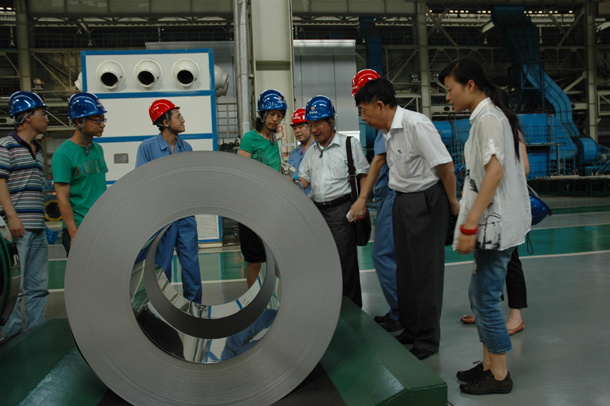
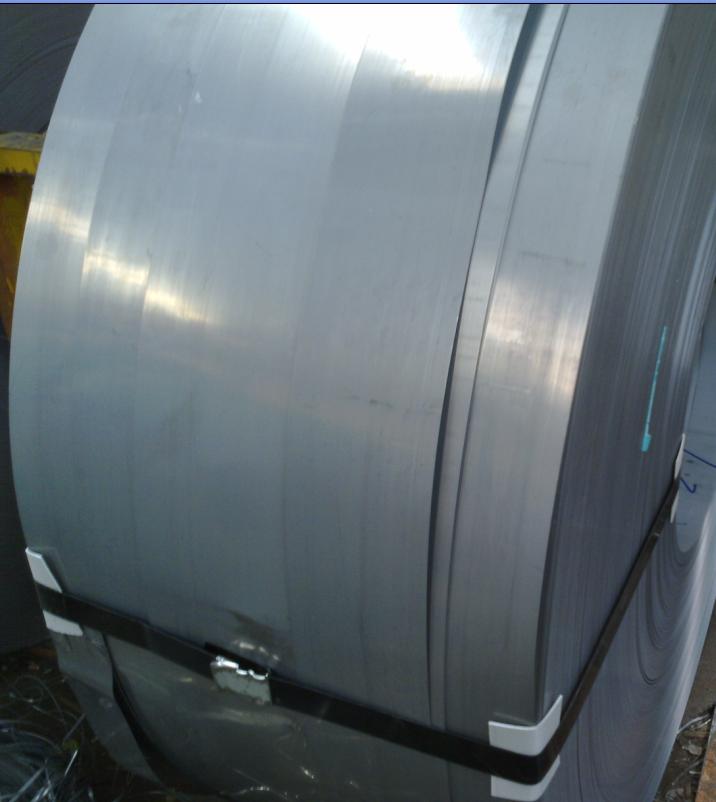
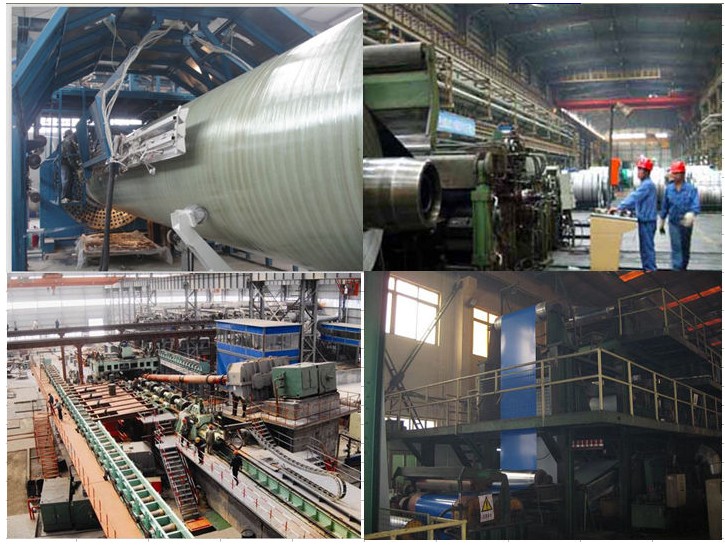
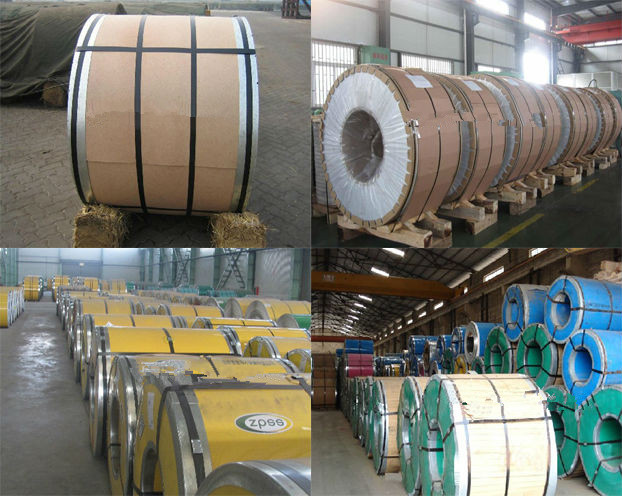
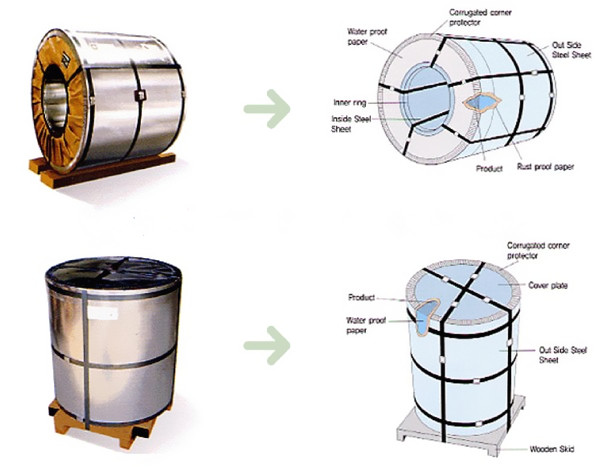
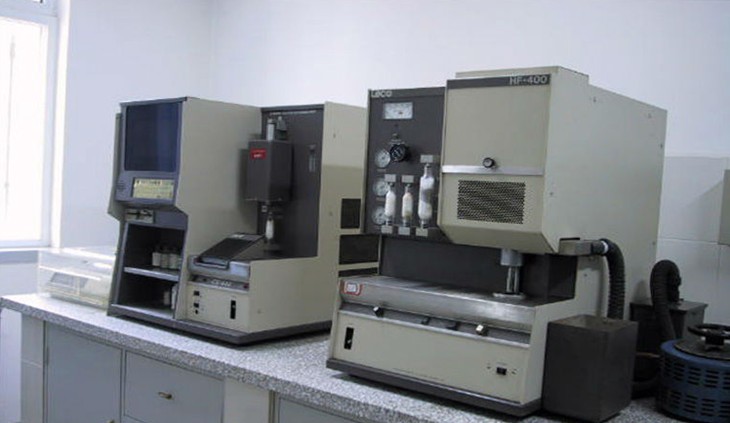
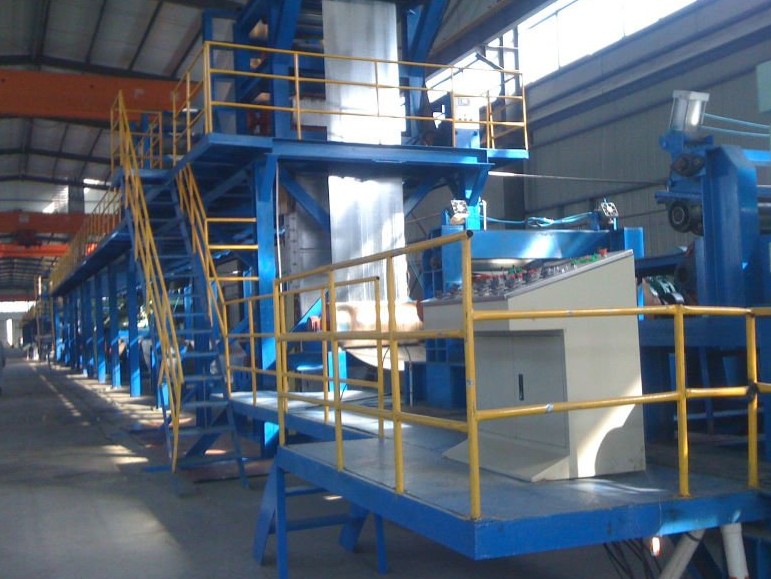
- Q: How are steel coils used in the production of agricultural structures?
- Steel coils are used in the production of agricultural structures as they are the primary material for manufacturing various components like beams, columns, and trusses. These coils are typically shaped, cut, and welded to form the framework for buildings, barns, silos, and other agricultural structures. The strength and durability of steel make it an ideal choice, ensuring that the structures can withstand harsh weather conditions and support heavy loads, making them essential for the agricultural industry.
- Q: What are the common coil weights available for steel coils?
- The available coil weights for steel coils vary depending on the specific application and industry requirements. However, the market offers a few standard coil weights. 1. Light coils: Industries such as automotive, construction, and appliance manufacturing prefer light coils weighing between 3 to 6 metric tons (6,000 to 13,000 pounds). These smaller and more manageable coil sizes are commonly used. 2. Medium coils: Industries like construction, infrastructure, and general manufacturing utilize medium coils weighing between 6 to 15 metric tons (13,000 to 33,000 pounds). 3. Heavy coils: Heavy industries such as shipbuilding, heavy machinery manufacturing, and infrastructure projects require heavy coils weighing over 15 metric tons (33,000 pounds), with some reaching 30 metric tons (66,000 pounds) or more. These coils provide the necessary strength for large steel components. It's important to understand that these weight ranges are flexible and subject to customer or industry specifications. Some manufacturers may even offer customized coil weights to meet specific project requirements. To determine the most suitable coil weight for a particular application, it is advised to consult with a steel supplier or manufacturer.
- Q: How are steel coils used in the production of electrical conduits?
- Steel coils are used in the production of electrical conduits in several ways. Firstly, steel coils are used as the raw material for manufacturing electrical conduits. These coils are made of high-quality steel that is specially processed and formed into a long, continuous strip. Once the steel coils are obtained, they are fed into a machine called a slitter. The slitter cuts the coils into narrower strips of the desired width. These narrower strips will serve as the base material for the electrical conduits. The next step is to shape the steel strips into the desired conduit shape. This is done by passing the strips through a series of rollers and other shaping tools. The steel strips are gradually formed into the round or rectangular shape of the conduit. The rollers apply pressure and manipulate the steel strip until it reaches the desired shape. After the shaping process, the ends of the steel strips are welded together to create a continuous conduit. This welding process ensures that the conduit will have a seamless structure, which is important for its functionality and durability. Once the conduits are formed and welded, they undergo further processing to enhance their properties. This may include processes such as galvanizing, where the conduits are coated with a layer of zinc to protect them from corrosion. This additional layer provides the conduits with increased longevity, making them suitable for various electrical applications. In summary, steel coils are essential in the production of electrical conduits. The coils serve as the raw material that is shaped, welded, and processed to create the final product. The use of steel coils ensures that the electrical conduits are strong, durable, and capable of withstanding the demands of electrical installations.
- Q: How are steel coils used in the manufacturing of agricultural machinery?
- Steel coils are used in the manufacturing of agricultural machinery as they provide the necessary strength and durability required for various components such as frames, axles, and blades. These coils are shaped, cut, and welded to form the desired parts, ensuring the machinery can withstand the demanding conditions of agricultural operations.
- Q: What are the different types of steel coil surface treatment options?
- There are several types of steel coil surface treatment options, including galvanizing, painting, chromating, and pickling. Galvanizing involves coating the steel with a layer of zinc to protect it from corrosion. Painting involves applying a layer of paint to enhance the appearance and provide additional protection. Chromating is a chemical process that forms a thin layer of chromate on the surface to improve corrosion resistance. Pickling involves removing impurities and scale from the steel surface using an acid solution.
- Q: Basically when i'm older, my dream Job would be, to be to start a steel mill, I've always loved the idea of working in Business and investing in things has always been a hobby of mine. i play games where u invest and make money. all i need is some facts about starting a steel mill?What requirements i need,- How time consuming is it,- How easy is it,- How to get started,- The Perks,- The downsides..how much would it cost to start one, like land, place, iron etc, to get started? also i would need a bank loan, how much money will the bank give me ? 80%??
- Typically, steel mills are worth $20 million to $200 million and are owned by large corporations. Your best bet to own one would be to take over a corporation that already has one. That way you have all the supply lines, customers, experts and other workers already there, too. Stick with investing in going concerns, so you don't need to be an expert in each business to build it up. Get them ready made, learn the details from the people already doing it, then work out ways to improve it. Do not get tempted to borrow even 10c from the scammers who have answered your question. Start saving your real money, reading the financial news, and making small real investments in real stocks.
- Q: Can i use steel shot in a remington 870 wingmaster full choke 30 inch barrel. the shotgun is in great shape and about 20 or 25 years old probably. thank you. the steel shot i have got is 12 gauge 2 3/4 in 1550 velocity 1 1/16 oz 2 shot winchester xpert high velocity steel shot
- The biggest problem is the FULL choke on the end of the barrel. Steel pellets are harder than lead, so they find it hard to squeeze through the tight full choke. If you do it, you WILL either bulge or crack the muzzle end of the barrel. That is a fact. Newer model 870 shotguns with RemChokes can fire steel, but you have to use a lead MODIFIED choke to send a full pattern down range. Again, for the same reason I mentioned earlier - that the steel does not deform and squeeze itself through the tighter chokes as well. See photo link below at what your barrel will look like after a box of steel shot.
- Q: Went to top gun range in Houston, Tx. Guy there said no steel bullets..Anyone know why? Think i can shoot them anywhere else? Perhaps an outdoor gun range? The are monarch FMJ 9mm steel rounds..Thanks!
- However, I cannot under any circumstance travel with loaded rifle magazines in my car. Those I have to load at the range because it would be illegal for me to travel to the range with loaded magazines. Even if I don't have a rifle in the car, I cannot possess loaded rifle magazines while traveling. All long guns (shotguns included) must be unloaded and secured in the vehicle, including magazines or tubes. There are several states with restrictions against traveling with loaded rifle magazines, so I'd suggest you check your state laws first, and if it is permissible in your state, then find out if the range will allow it too.
- Q: I saw a 27 sedan and a 27 Pick-up one had wood wheels the other steel, respectively. Witch one was original or were they both original
- Wooden Spoke Wheels
- Q: How are steel coils used in the production of kitchenware?
- Steel coils are used in the production of kitchenware as they are unrolled and cut into specific shapes and sizes to form the base or body of various utensils like pots, pans, and trays. The coils are then shaped, molded, and welded to create the desired kitchenware products, which are further processed for surface finishing, such as polishing or coating, before being ready for use in households or commercial settings.
Send your message to us
hot rolled stainless steel coil
OKorder Service Pledge
OKorder Financial Service
Similar products
Hot products
Hot Searches
Related keywords
